The United Nations Committee on Economic, Social and Cultural Rights (ESCR) has issued historic recommendations, finding Spain in violation of the right to housing, in the first case decided under the Optional Protocol to the International Covenant on Economic, Social and Cultural Rights (OP-ICESCR). Dismissed by the Spanish Constitutional Court, the case involved a homeowner, who learned that her home was being auctioned after she fell behind on payments during the economic crisis.
This case (I.D.G. v. Spain) is important for at least five reasons. First, it reinforces the principle of access to justice. Individuals or groups of individuals—whose civil, economic, political, social or cultural rights are violated—have a right to remedy. States are accountable for the realization of all human rights, from rights to housing and health care to rights to life and political participation, as reaffirmed in the Universal Declaration of Human Rights (1948), the Vienna Declaration and Programme of Action of the World Conference on Human Rights (1993), and national constitutions in every region. Perhaps most importantly, popular struggles in Spain and countries around the world have emphasized that human rights are interdependent and interconnected in the lived experience of human beings.
Second, in taking up this case and offering strong recommendations, the UN Committee on ESCR has provided valuable guidance to Spain, Spanish civil society and ultimately countries around the world. These recommendations addressed both the individual complainant and the structural change required to prevent similar violations in the future. The Committee said that Spain should assure that no eviction takes place against I.D.G., if she is not protected by due process guarantees, as well as calling on the government to cover her legal costs. The Committee also reminded Spain of its obligation to ensure that the country’s legislation and its application are consistent with human rights, including guaranteeing access to remedy, adequate notification and procedural protections in cases of foreclosure.
Echoing trends first seen in the US, Observatori DESC and Plataforma de los afectados por la hipoteca have estimated that 400,000 mortgage foreclosures took place in Spain between 2008 and 2012, as millions faced unemployment and the national housing budget declined. This case is the first decision of this new UN mechanism, and it will help countries to understand and meet their human rights obligations in concrete situations, including in times of economic crisis. The media in Spain, as well as Latin America, have extensively covered this case—a reminder that, as Beth Simmons has argued, international human rights standards are “useful tools in domestic political contestations.” The recommendations of the Committee on ESCR reinforce and further interpret Spain’s human rights obligations, expanding the legitimacy of grassroots struggles for housing and the tools available to them.
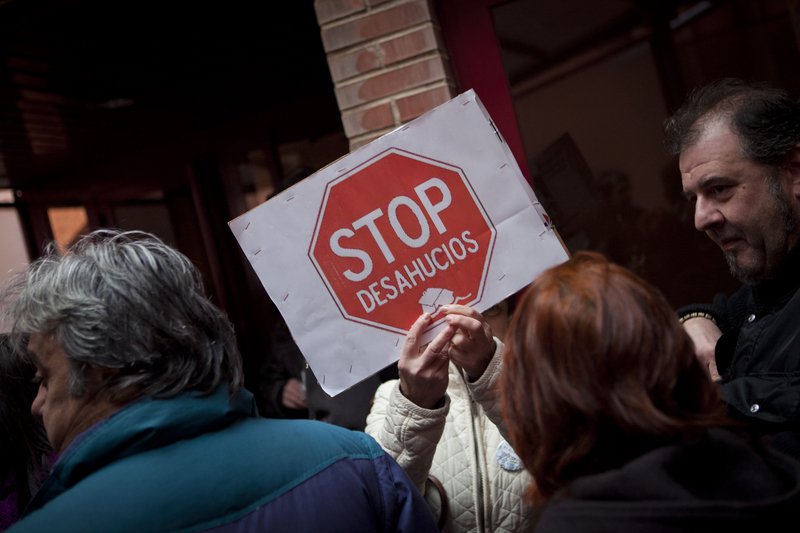
Demotix/Antonio Navia (All rights reserved)
Demonstrators protest unfair evictions in Madrid, Spain.
Steps will ideally be taken in dialogue with affected communities, engaged civil society organizations and the Committee. Third, this case arguably demonstrates the Spanish government’s commitment to human rights. In the midst of an economic crisis that led to the well-documented deterioration of human rights, Spain became one of the first countries in the world to ratify the OP-ICESCR. Having taken this bold decision, many are now looking to Spain for ongoing human rights leadership in taking steps to implement the recommendations of the UN Committee on ESCR. These steps will ideally be taken in dialogue with affected communities, engaged civil society organizations and the Committee, tailoring concrete measures to the particular conditions in Spain. In addition, Spain’s ratification of the OP-ICESCR should encourage the country to ensure that increasingly effective domestic remedies are available.
Fourth, the UN Committee on ESCR accepted a third party intervention from the International Network for Economic, Social and Cultural Rights (ESCR-Net). Through this collective intervention, ESCR-Net members—Socio-Economic Rights Institute of South Africa, Center for Economic and Social Rights, and Global Initiative for ESCR—presented comparative legal approaches from other contexts and highlighted established legal principles. In accepting third party interventions from civil society, the UN Committee has opened this process to legal reasoning and related expertise from all regions, striving to provide constructive guidance to states on relevant human rights approaches and remedies.
Fifth, coming in the days immediately prior to the UN General Assembly’s launch of the Sustainable Development Goals (SDGs) for 2030, the recommendations in this case are also a vital reminder that governments have existing obligations to realize human rights and ensure access to justice. The ICESCR and other human rights treaties require governments to respect, protect and fulfill economic, social and cultural rights, based on their maximum available resources and with international assistance and cooperation.
While the SDGs incorporate aspects of human rights and were based at least in part on widespread consultation, governments failed to agree to substantial and necessary funding for these 15-year targets, promoting instead the role of the private sector and public-private partnerships. However, in the pursuit of profit and in the absence of strong action by governments, much of the private sector—corporations, investors, financiers—has been adept at the avoidance of taxation and regulation, thwarting redistribution efforts that would serve to advance human rights. Given current global wealth and the opportunities that exist to address inequality, the continuance of poverty, hunger and the lack of “adequate, safe and affordable housing and basic services” (SDGs 1, 2 and 11) is a violation of human rights.
Ultimately, after intensive civil society pressure, SDG 16.3 calls on governments to: “Promote the rule of law at the national and international levels and ensure equal access to justice for all.” Ratification of the OP-ICESCR is one concrete step that all countries can take towards realizing this goal, reinforcing government commitments to provide access to remedies. With the advocacy of the NGO Coalition for the OP-ICESCR, over 20 countries—across Africa, Asia, Europe and Latin America—have already taken this important step.

Read more
Get our weekly email
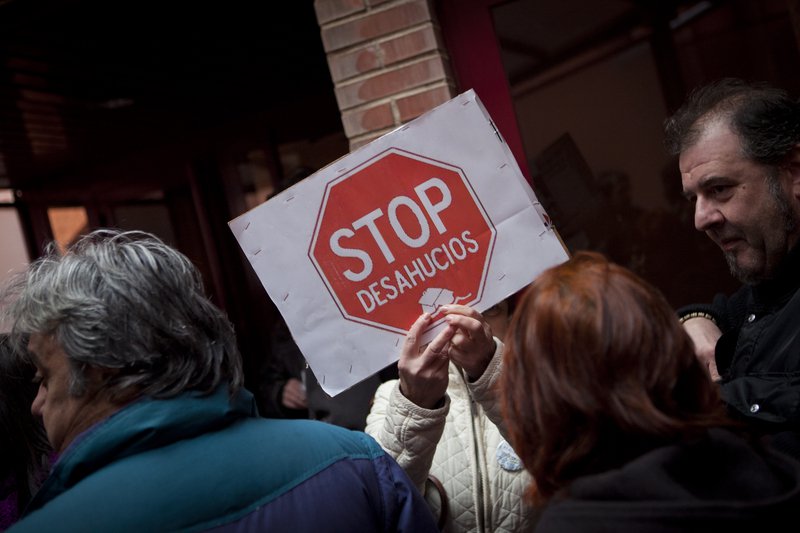
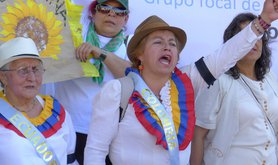
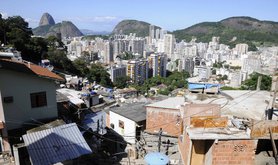




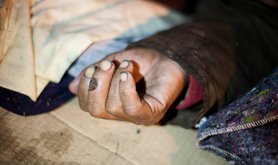
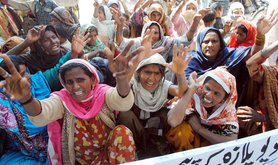


Comments
We encourage anyone to comment, please consult the oD commenting guidelines if you have any questions.